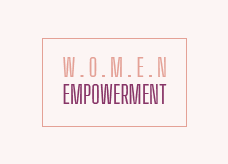Addressing Microaggressions: Fostering Gender Inclusivity in Tech
Our latest study on Women in Tech revealed that close to half of the respondents, nearly 50%, have encountered gender-related microaggressions periodically. Approximately 9% of respondents have observed such behaviour occurring more frequently. On the other hand, 30% of respondents have neither experienced nor witnessed gender-related microaggressions in their workplace.
Interviews uncovered instances of workplace microaggressions, which could manifest as:
- Women being frequently interrupted or spoken over during meetings or discussions, which undermines their contributions and diminish their presence in the conversation.
- Men taking credit for ideas or work that women have contributed, either intentionally or unintentionally, which erodes recognition and opportunities for advancement.
- Instances where women seek support for technical tasks, only for men to take over and sometimes complete the work.
- Colleagues or superiors may make inappropriate or sexist remarks or jokes, creating a hostile or uncomfortable work environment for women.
- Women encounter situations where their skills or expertise are underestimated or questioned, based on gender stereotypes or biases.
- Women are excluded from networking opportunities, important projects, or career advancement pathways, contributing to feelings of marginalisation, and limiting their professional growth.
- Women are assigned stereotypically “female” tasks or responsibilities, such as administrative/management duties, regardless of their qualifications or career aspirations.
Are you a victim of micro-aggression and need help? Please reach out to us on contact@techbeyondgender.org
Addressing Microaggressions: Fostering Gender Inclusivity in Tech
In the fast-paced and often demanding world of the technology sector, microaggressions represent a subtle yet pervasive challenge that can significantly impact the morale and effectiveness of women in the field. Microaggressions are subtle, often unintentional actions or comments that convey discriminatory attitudes or stereotypes towards marginalised groups. In the context of the technology industry, these microaggressions can take various forms, ranging from subtle comments and gestures to more overt behaviours that undermine the confidence and productivity of female professionals, hindering their ability to function to their full potential.
The cumulative effect of these microaggressions takes a toll on the morale and well-being of women in the technology sector. Constant exposure to such behaviours erodes their confidence, saps their motivation, and contributes to feelings of isolation and imposter syndrome. Moreover, the stress and anxiety caused by navigating these hostile environments can lead to burnout and attrition, exacerbating the gender imbalance in the industry.
Beyond the individual level, microaggressions have broader implications for organisational culture and performance. When women are marginalised and undervalued, it diminishes the diversity of perspectives and talents within tech companies, stifling creativity, innovation, and problem-solving. Moreover, it undermines efforts to attract and retain top talent, as women may opt to leave male-dominated environments in search of more inclusive and supportive workplaces.
Addressing microaggressions requires a multifaceted approach that involves raising awareness, fostering inclusive leadership, and implementing concrete measures to promote diversity and equity. Organisations must prioritise education and training to help employees recognise and mitigate unconscious biases, create policies and practices that promote diversity and inclusion, and cultivate a culture of respect and belonging where all individuals can thrive.
By confronting microaggressions head-on and creating a more inclusive environment, tech companies can unlock the full potential of their female talent pool, drive innovation, and achieve sustainable success in the digital age. Together, we can build a future where diversity is celebrated, and everyone has an equal opportunity to succeed, regardless of gender.
Learn more about micro-aggressions and other factors that hinder gender equality in technology workplaces.






